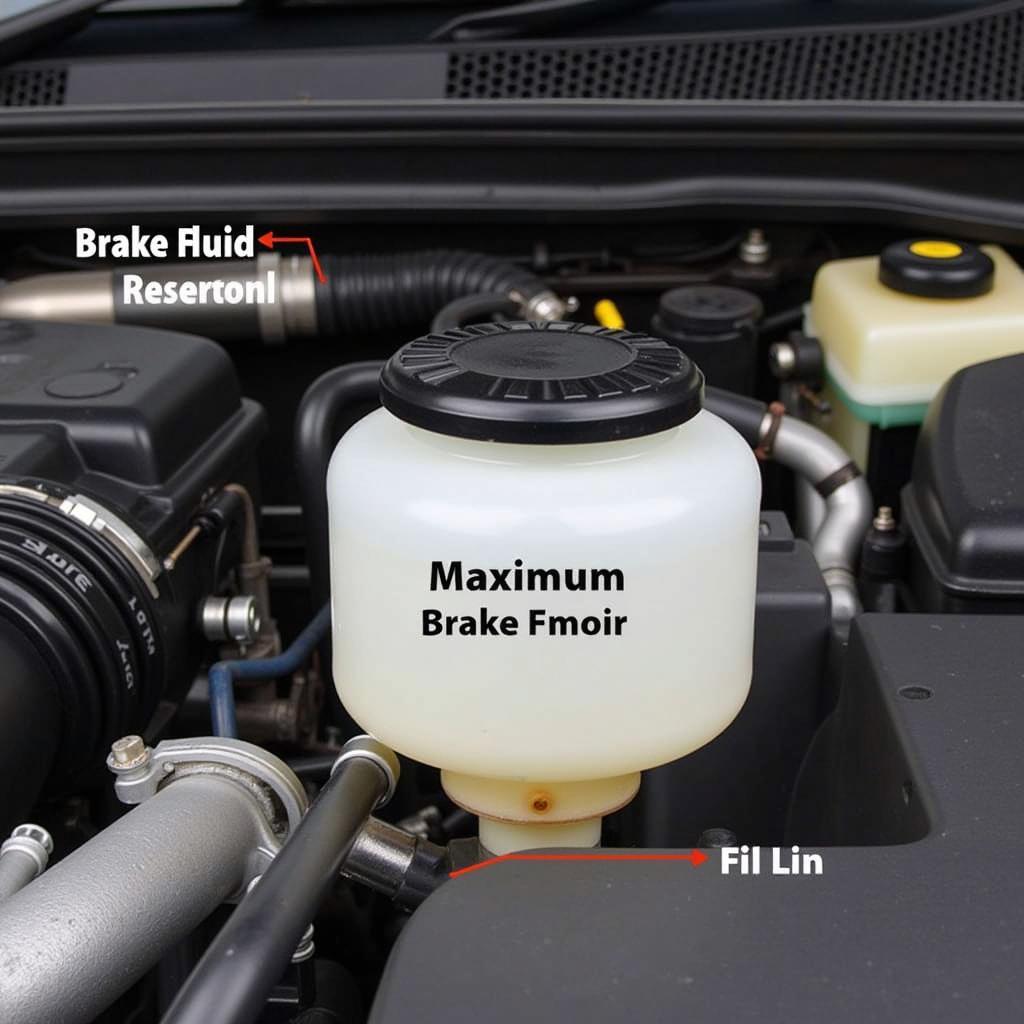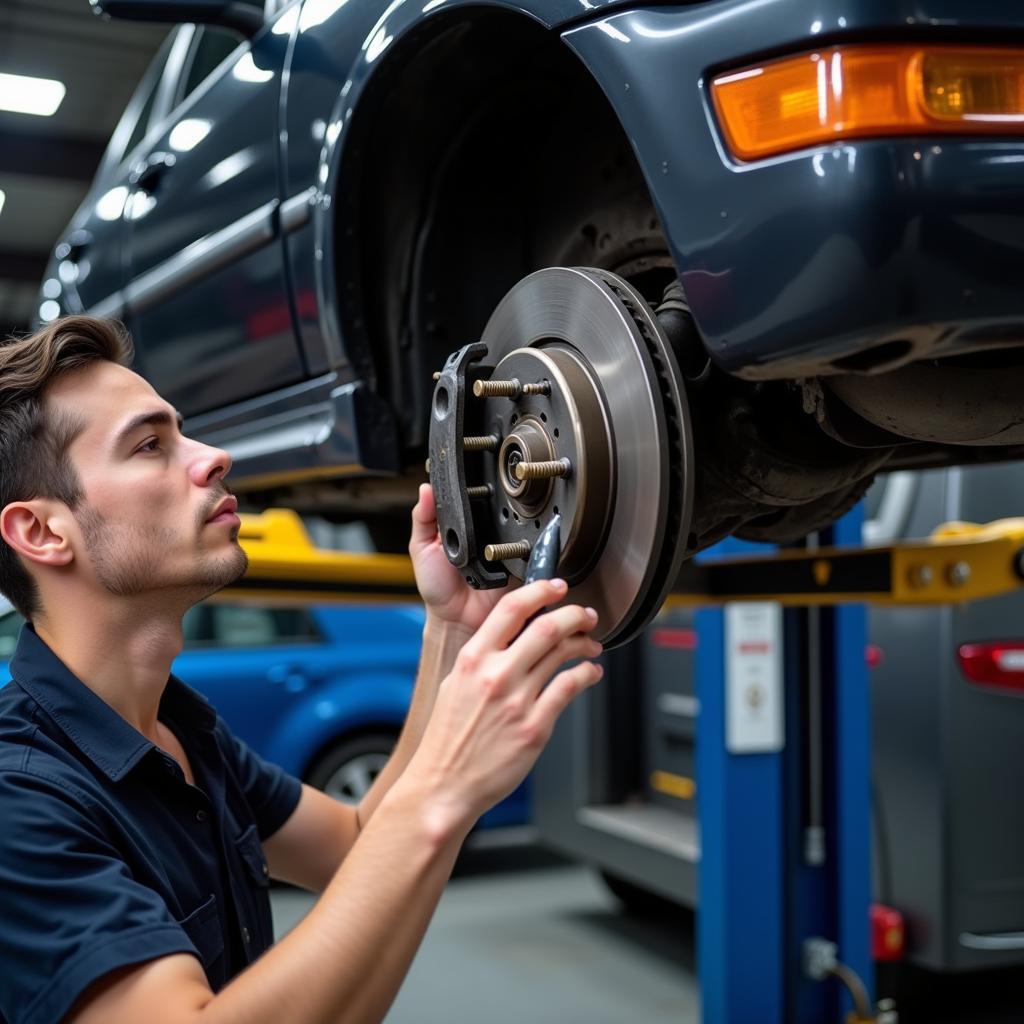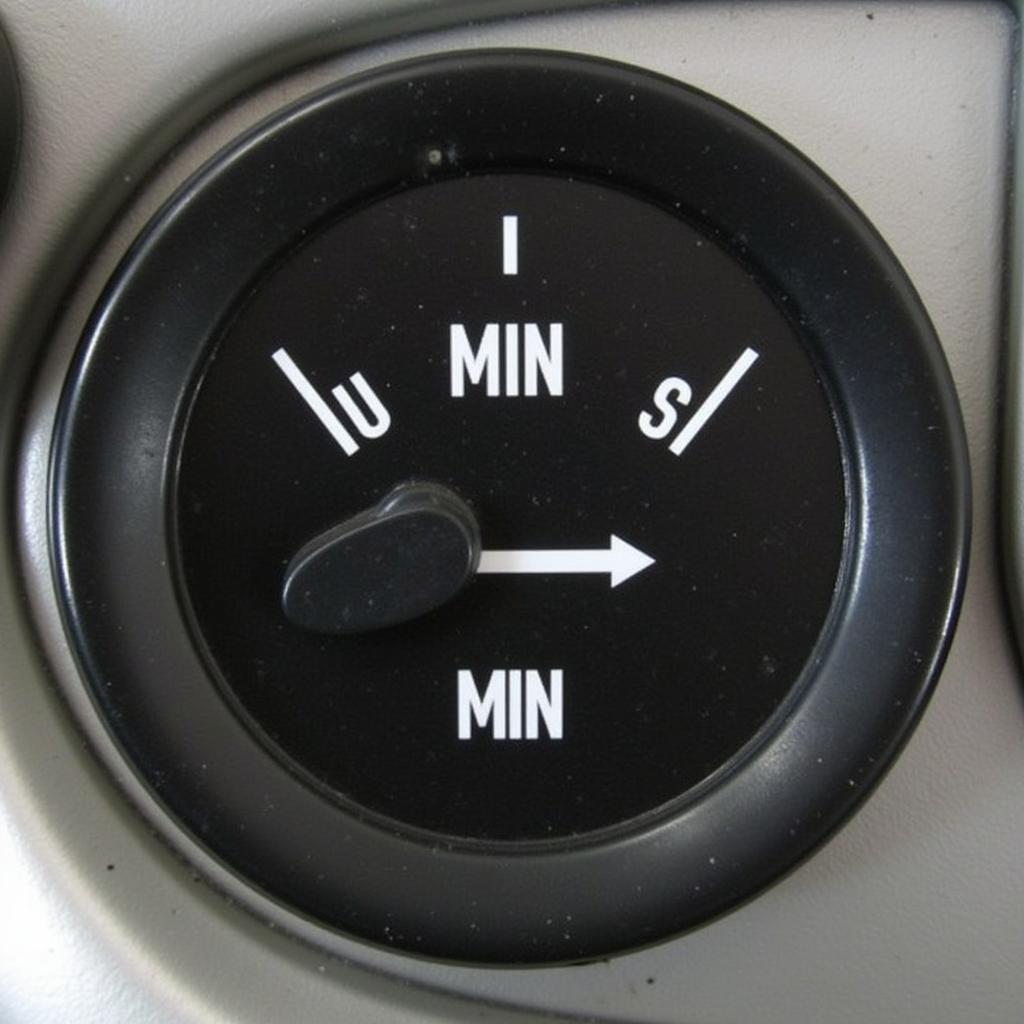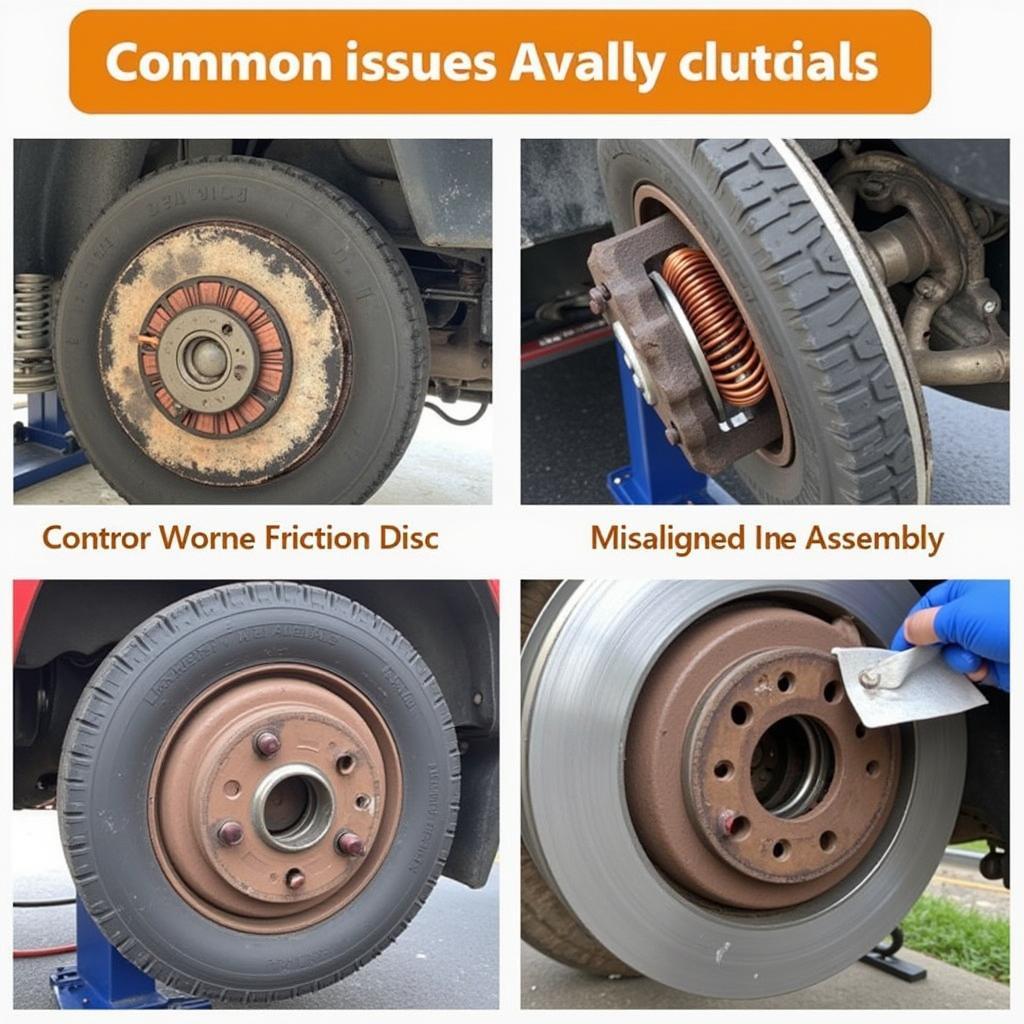A glowing brake warning light on your dashboard is a clear sign that something’s not right with your car’s braking system and requires your immediate attention. It could be a minor issue or something more serious, but ignoring it could put you and others at risk. This article will help you understand the different reasons why your brake warning light might be on and what steps you should take to address them.
Common Causes of a Brake Warning Light
There are several reasons why your brake warning light might illuminate, ranging from simple fixes to more complex issues. Here are some of the most common culprits:
- Low Brake Fluid: Your car’s braking system relies on hydraulic pressure to function properly. If the brake fluid level drops too low, it can disrupt this pressure, triggering the warning light.
- Worn Brake Pads: Brake pads are designed to wear down over time. When they become too thin, a sensor in the brake pad will activate the warning light.
- Faulty Brake Caliper: The brake caliper houses the brake pads and pistons and is responsible for clamping the pads against the rotor to slow down the vehicle. A malfunctioning caliper can lead to uneven brake pad wear and potentially a lit warning light.
- Issues with the ABS (Anti-lock Braking System): The ABS prevents your wheels from locking up during hard braking. A malfunction within the ABS system, such as a faulty sensor, can trigger the brake warning light.
- Parking Brake Engaged: Sometimes the simplest answer is the right one. If your parking brake isn’t fully disengaged, it can trigger the warning light.
 Brake fluid reservoir
Brake fluid reservoir
What to Do When Your Brake Warning Light Comes On
Regardless of the reason behind the glowing brake warning light, here are the steps you should take:
- Don’t Panic: While a brake warning light is a serious issue, it’s important to remain calm.
- Pull Over Safely: Find a safe location to pull over as soon as possible. Driving with a potential brake problem is extremely dangerous.
- Check Your Parking Brake: Ensure your parking brake is fully disengaged. If it’s not, disengage it and see if the light turns off.
- Check Your Brake Fluid: If it’s safe to do so, carefully open your hood and check the brake fluid level in the reservoir. If the fluid is low, add the appropriate brake fluid (consult your owner’s manual).
- Avoid Driving: Even if the warning light goes off after adding brake fluid, it’s crucial to have your vehicle inspected by a qualified mechanic. Driving with low brake fluid can damage your braking system.
The Importance of Professional Diagnostics
While some brake warning light issues can be simple to diagnose, others require specialized knowledge and tools. For example, a fault within the ABS system necessitates the use of a diagnostic scanner to pinpoint the problem.
“Many drivers underestimate the complexity of modern braking systems,” says Jake Peterson, a senior automotive technician at Peterson’s Auto Repair. “Trying to troubleshoot beyond the basics can lead to further damage and higher repair costs.”
Attempting to repair complex brake issues yourself can be dangerous. Always consult a qualified mechanic for any brake problems beyond low brake fluid or a disengaged parking brake.
 Car on a lift undergoing brake inspection
Car on a lift undergoing brake inspection
Brake Warning Light FAQs
Q: What does it mean if my brake warning light is flashing?
A: A flashing brake warning light often indicates a problem with your ABS system. However, it can also signal extremely low brake fluid. Seek professional help immediately.
Q: Can I drive with the brake warning light on?
A: It’s highly discouraged. Driving with a brake warning light on is incredibly risky. Pull over as soon as it’s safe and have your vehicle towed to a mechanic.
Q: How much does it cost to fix a brake warning light issue?
A: The cost can range widely depending on the underlying problem. Simple fixes like adding brake fluid are inexpensive. However, complex repairs like replacing a brake caliper or ABS module can be costly.
Conclusion
A brake warning light is a serious signal that should never be ignored. While some causes, like low brake fluid or an engaged parking brake, are relatively easy to address, others demand the expertise of a qualified mechanic. Remember, your safety and the safety of others on the road should always come first. By understanding what a brake warning light means and responding appropriately, you can ensure your vehicle’s braking system remains in top condition.


